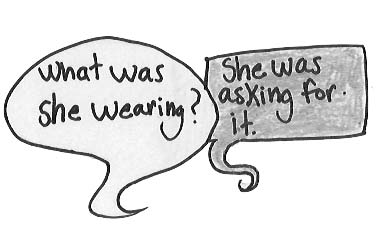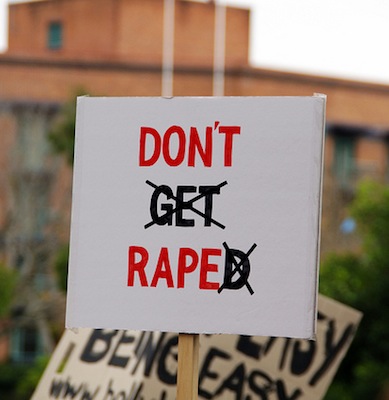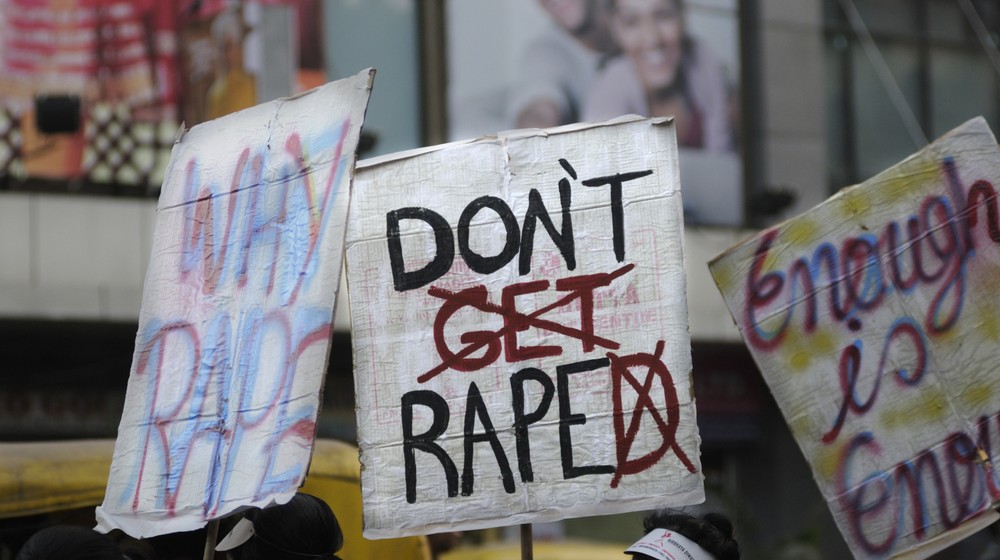“Why didn’t you leave your abusive partner?”, “Why didn’t you go to the police?”, “Why don’t you learn self-defense?”
When survivors come out about their trauma, they are asked these questions, often by “well-meaning” people. Many of us have advised survivors on what they should do to hold their abuser accountable or how they should deal with their trauma. As an outsider to the survivor’s experience, it is easy to overlook the fact that the survivor’s trauma is entirely their own. And hence, as an ally, it is important to understand and respect a survivor’s autonomy over their experience and provide the space they need to cope with their trauma, instead of giving unsolicited advice.

Setting “perfect victim” expectations is victim-blaming
As a survivor, I have often felt burdened by the need to explain to strangers and sometimes even to friends, well-wishers, and allies, why I chose to deal with my trauma(s) the way I did. I am sure many other survivors share my feeling. The feeling of not having done enough. While the anger that allies share with survivors is justified, expecting a survivor to hit their abuser back or go to the police even though they are hesitant to take legal action, is bad allyship. The purpose of our allyship is not to make the survivor do what will sooth our anger for their abuser, but to provide them the space and comfort they need in their fight.
While the anger that allies share with survivors is justified, expecting a survivor to hit their abuser back or go to the police even though they are hesitant to take legal action, is bad allyship.
Solidarity comes without expectations. Survivors deserve every bit of our support regardless of how they choose to deal with abuse. Expecting them to check boxes reinforces society’s victim-blaming attitudes even within their own trusted circles.
We must stop underestimating survivors
Almost each time a survivor comes out about their trauma, they are bombarded with “well-intended” advice, regardless of whether they ask for it or not. We often forget to ask the survivor what they want to do or how they would like us to support them. By giving them unsolicited advice, we underestimate their capacity to make decisions for themselves, disrespect their autonomy, and may even invalidate their choices.
As allies, we need to truly listen. We need to make efforts to understand what survivors want for themselves, encourage them, and validate them however they choose to fight. It is wrong to automatically assume that an adult survivor needs our advice and does not already know better about acting in their own best interest.
Unsolicited advice and safety tips add to trauma
Patronizing attitudes of friends, well-wishers, and allies have always added to my sexual trauma(s). When a survivor shares their experience with us, they allow us visibility to some of their worst experiences. The least we can do is be sensitive in what we do or say. Emphasizing on “safety measures” shifts the accountability from the abuser to the survivor. Often, the survivor is already aware that one can carry around a pepper spray, call the police, or learn self-defense. We need to understand whether the survivor is at all seeking our advice.

I was in a vulnerable place each time I came out to someone about my encounters with sexual violence. Especially when I was younger, unsolicited tips and advice added to my feeling of inadequacy and made me question if it happened because I did not perform my responsibilities in ensuring my own well-being as a girl. While most people patronize survivors with the intent of empowering, they only end up causing harm and make coping more difficult.
Emphasizing on “safety measures” shifts the accountability from the abuser to the survivor. Often, the survivor is already aware that one can carry around a pepper spray, call the police, or learn self-defense.
Respecting boundaries
“Why don’t you walk out of the relationship?”
People often disregard the fact that survivors may have their own boundaries, owing to socio-economic or cultural settings. Survivors may not have equal choice, equal powers, equal access, and equal agency as others. They may have psychological limitations as well. In the Indian context, most survivors of domestic violence and intimate partner abuse do not have the choice of walking out of an abusive marriage or relationship. They end up staying for a multitude of reasons—economic dependency on the abuser, children, gaslighting, social stigma, and so on. Survivors are enculturated to “fix what is broken” rather than “throw it away”.
Intimate partner abuse and domestic violence have their own mental implications on the survivor. Walking out of an abusive relationships, even if the survivor has the socio-economic capacity to make the choice, may take immense mental strength and labour. Insisting that the survivor ends the relationship without offering them our practical help if they actually choose to leave the relationship, only makes it more difficult for them.
“Why don’t you go to the police?”
The state and its machinery are not always willing to help survivors. I reported sexual assault to the police. Victim blaming, moral policing, and character assassination followed. No action was taken against my abuser despite multiple visits to the police station and writing to the State and National Women’s Commissions. And after ten months of inaction, I, a middle-class well-educated Savarna woman with legal awareness, consented to them closing the matter because I was emotionally shattered.
PEOPLE OFTEN DISREGARD THE FACT THAT SURVIVORS MAY HAVE THEIR OWN BOUNDARIES, OWING TO SOCIO-ECONOMIC OR CULTURAL SETTINGS. SURVIVORS MAY NOT HAVE EQUAL CHOICE, EQUAL POWERS, EQUAL ACCESS, AND EQUAL AGENCY AS OTHERS.
I provide legal advice to survivors of sexual abuse. I also think access to legal aid is every survivor’s fundamental right. However, as allies, we need to acknowledge that not all survivors may be willing to take the legal route because it is an uphill task. Although it is often difficult to prove sexual abuse, which mostly happens in private, the burden of proof is on the survivor. Therefore, we need to understand and support survivors regardless of whether they want to take legal action.
Also read: Victim Blaming: A Trope As Old As The Hills
“Learn self-defense!”
Let’s face it—learning self-defense is not the solution. Expecting survivors to learn self-defense only adds to the list of things a survivor should have done to be the “perfect victim”. Self-defense classes are not accessible to or affordable for all. Learning a skill takes labour and effort. Not everyone has the time to take up classes to learn a skill. Not everyone is willing to learn a skill that involves aggressive physical activity. Most self-defense classes are not suitable for disabled persons.
It goes without saying that we must support and motivate those who want to learn or are learning self-defense. But expecting survivors to learn how to defend themselves only reinforces an abusive environment as the status quo, where survivors need to perform extra labour, and spend extra money and time to keep themselves safe.
Also read: Victim Blaming Promotes Rape Culture. Here’s How.
Survivors do not owe us their stories. Survivors do not have to meet expectations. As allies, we must learn to listen and believe. We must keep conversations going and start with holding abusers in our own circles accountable. All survivors deserve our unconditional and honest solidarity.
Featured Image Source: Indians 4 Social Change
About the author(s)
Debarati is a queer feminist lawyer and musician always learning to be pro-intersectional in her politics.




